Hi lovely reader 👋
Welcome to Off-Grid Voices, a series of written interviews with others who are out there living their best lives, living lives that are a little outside the norm, a little different. I’m hoping this series will inspire some of you who may be thinking about living a life off the grid, homesteading, travelling the world, doing #vanlife, or anything else that you may be considering. Hope you enjoy exploring these lifestyles with me. 😊
This week we get to know Luke Miller, who writes on his Substack Heart Centred Living, his own personal diary of quite a mishmash of subjects. Luke writes about the mysteries of life, his adventures with spiritual practices, plant medicines, and his personal experience living off-grid.
Here he is with his wife and two kids:
Hi Luke, thanks so much for wanting to do this interview! Let’s start with learning a bit more about you! Tell us a bit about yourself, where you live and your journey to living life your way?
Currently I live in a woodland in the magical land of Glastonbury with my beautiful family (wife, 2 kids and 2 dogs). The last 12 or so years have been somewhat of a Shamanic initiation in which I went from atheist, anxious and addicted to many things, to connecting through meditation to higher aspects of reality - this led me on an adventure across the world, spending time in the Amazonian rainforest learning about the healing nature of plants, and I also spent time in India learning Yoga, both its physical practice, and its philosophical framework.
It is safe to say I am no longer an atheist, and my work now focuses on three things.
Restoration of the medicine wheel of our land (England, formerly known as Albion)
Restoration of the family unit and its place within a healthy community
Restoration of the health and vitality of the individual
When I was travelling, I discovered thriving cultures that were deeply connected to nature and the forces that exist beyond just the physical. I adopted many of these practices, such as songs from other cultures, plant medicines used in ceremonies and parts of the ceremonies themself. It wasn’t until recently that I arrived at the revelation that while I am incredibly grateful for the generosity of the people who have managed to keep their traditions alive, I need to rediscover the ceremony and culture in my own land that has been unfortunately lost. So this is the purpose we find ourselves pulled by currently, and what led us to living in the woods in an attempt to start what we believe will be something that will take multiple generations to establish as a thriving multi-generational community.
Now, let’s talk about all things “off-grid” , tell us a bit about your living situation. I always like to say there are “degrees of off-gridness”, so just how off the grid are you? How long have you been living this way?
After living in London our whole lives, my wife and I moved to a house in the Somerset countryside in 2020. She was pregnant at the time, and the world was locking down due to Covid, and we fell in love with the slower pace. Eventually, it became too expensive for us, and we had to move back in with our parents in London. The whole experience was difficult as we’d had a taste of the outdoors, so after a while we took a leap of faith and bought a van and lived on the road for a while. We spent some time living in a community on an organic farm, and some time on the road moving from place to place.
Living in the woods came together quite synchronistically earlier this year. I was talking with the person managing the organic farm we were staying at and explaining that we love what they are doing and everything they stand for, but that we have a project inside of us wanting to come to life. I mentioned that it would be great if we could set up next door in the neighbouring land, and then a few days later the neighbouring land came up for sale. We had an unexpected turn in fortune and were lucky enough to be able to purchase it and get set up in the woods. It is a paradox, as it happened so quickly, but it has also been something we have been holding in our intention for as long as I can remember.
Our set-up is a static caravan, which we have been in for a few months. We have access from a country lane, and the town is a 15-minute drive, so we are not quite hunting our dinner with spears yet, but I have not had a hot shower in months, and it is starting to get pretty cold at night.
I can relate to that story so much. We were the same, we had been wanting to live an off the grid life for as long as we can remember, and all of a sudden an opportunity popped up almost out of the blue and we grabbed it with both hands! What inspired you to seek out this kind of lifestyle?
I feel that life has become convenient, and paradoxically, this is a major challenge that we face as a species. Sometimes, something that seems progressive is actually detrimental. I had a major revelation that I do not know how to take care of myself outside of the system which has been created, and if the electricity went out, the supermarkets shut their doors or the taps stopped giving me water I would be in trouble very quickly. I realised I was living within a pseudo-safety, meaning that if I earned enough tokens (money) I could survive or even thrive, but only based on what was available externally by industry. I wanted to learn to provide my own food, have a water supply and be able to build my own structures to stay warm. I am still learning what this means in reality, but I am now willing to devote my life to it to find out.
On a larger scale, the real longing for us as a family is to build a community of like-minded people. I spent time in the rainforest and saw tribes living as a unit. If one member needed support, it was offered and thought of as the responsibility of the whole, and this feels more like the way I would like to live and raise a family.
It feels like Western families put the kids in school, grandparents in care homes and then the parents go to work for someone else's dream to be able to get enough tokens to continue running on the hamster wheel. We want to cut out the middleman so we can all be together, and grandparents can reclaim their space telling stories by the fireside, and communities can raise the children and teach the skills we have cultivated in-house based on what the children are interested in. For now, it's the 6 of us, but we are dreaming this bigger vision into reality.
Living a life off the grid, away from everything, requires at least a couple of skills and, as I have personally experienced, can come with quite a steep learning curve. When you first started living this way, what was your biggest learning? Or what was the thing you needed to learn straight away?
We are still in the infancy, but when living in our van, the rain was not fun. It was one of the wettest years last year, and it rained just about every day for months. In a house, this is okay, as you can throw your wet stuff on the radiator or stay inside and put the heating on, but in a van (with a wife and 2 kids), it can get a little cramped, and when you go out to get some space, you come back soaked with nowhere to hang anything.
I found the quickest way to learn how to fix a roof is waking up to it leaking on your head in the middle of the night. This creates an urgency and forces us into action.
Fast forward to now, I am seeing that being responsible for such a big chunk of land offers me the opportunity to exercise new muscles. I thrive creatively, and am able to switch on my laptop and write quite fluidly when I want to. We also hold ceremonies and offer healing with sound and different plants. DIY, on the other hand, is neither of our strengths and even staying on top of the little things like washing up and chopping wood can be laborious. But I am being shown that when you don’t chop wood and it's raining outside and cold, you feel it in your bones, and the consequences of not doing things are far more punctuated.
I like to think the land is teaching me to grow up and take deeper responsibility, and when I don’t listen, it is a strict her.
There’s never a dull moment when living off the grid 😊What would be the biggest benefits you see to living this way?
Freedom is the big one, and being connected to a piece of land. I once heard an Indigenous elder speaking, and they said the reason people are so willing to cut the trees down is because they do not live with them. I can see this, as the forest has become as much a part of our family as the children and dogs.
People often dream of living life this way, but when you actually live this way you quickly find out that it’s not only made up of Instagram-worthy moments. Tell us a bit more about the challenges. What is your biggest current challenge?
There was a moment when we first arrived when the overwhelm was so intense that I started to shut down and only focus on my primitive survival needs. Showering and socialising were neglected; it just felt like there was so much to do, and I am used to a slower pace. To be honest, it felt crippling, and me and my wife kept glancing at each other with crazy eyes, like maybe we were pushing ourselves too far this time.
This still comes and goes in smaller doses, but the long night is always followed by the sunrise, and as the days go by, we are growing stronger and learning to manage more efficiently.
What would you recommend to other people who are thinking about going off the grid?
To do it. As a species, we have lived off the grid forever; it is only in recent culture that we have become so dependent on institutions for everything. This correlates with mental illness, premature death and disease. It can seem counter, but the evidence shows that convenience does not equate to health or happiness. My Grandparents grew their own food, as did many of their generation, but it is now becoming a lost art.
To live this kind of life, it may take some planning, a few leaps of faith and some luck - but if you can hold a strong vision for something more nourishing, then when the opportunity comes along, you will be ready.
With something like this, I don’t think you can ever be truly ready. It's like having a baby; it doesn’t matter how many books you read or how many parenting classes you attend, there will be challenges and surprises.
What is your favourite resource about off the grid living; could be a book, a YouTube channel, another Substack or a podcast, you choose!
We have used YouTube for all the small jobs we didn’t know how to do. Ultimately, the experience itself is the biggest resource. It has felt like an initiation for our family that has forced us to raise our standards to a new level. We are still learning every day, but have found something in this experience that is really hard to put words to.
Luke, thanks so much for this interview and telling us a little bit more about yourself and your journey!
Something that inspired me this week
I’m well aware that I’ve been going about the baby swallows for a while now. As I’m sure you all know, we had a swallow nest in our outhouse and I got very lucky witnessing their first flight (or one of their first flights). It was ridiculously cute and unfortunately I was so mesmerised that I didn’t film it. So I went online and looked for some other videos because I wanted to relive the moment, and I found this one. Keep watching to see how the smallest one grapples with his anxiety about leaving the nest and finally overcomes his fears 😁
If you enjoyed this article, consider becoming a paid subscriber. Currently all articles are free and delivered to your inbox once a week. In 2025 there will be some exciting extras for our paid subscribers. By becoming a paid subscriber you help keep this publication going and growing. A yearly subscription is 50 NZD, that’s the price of a nice book.







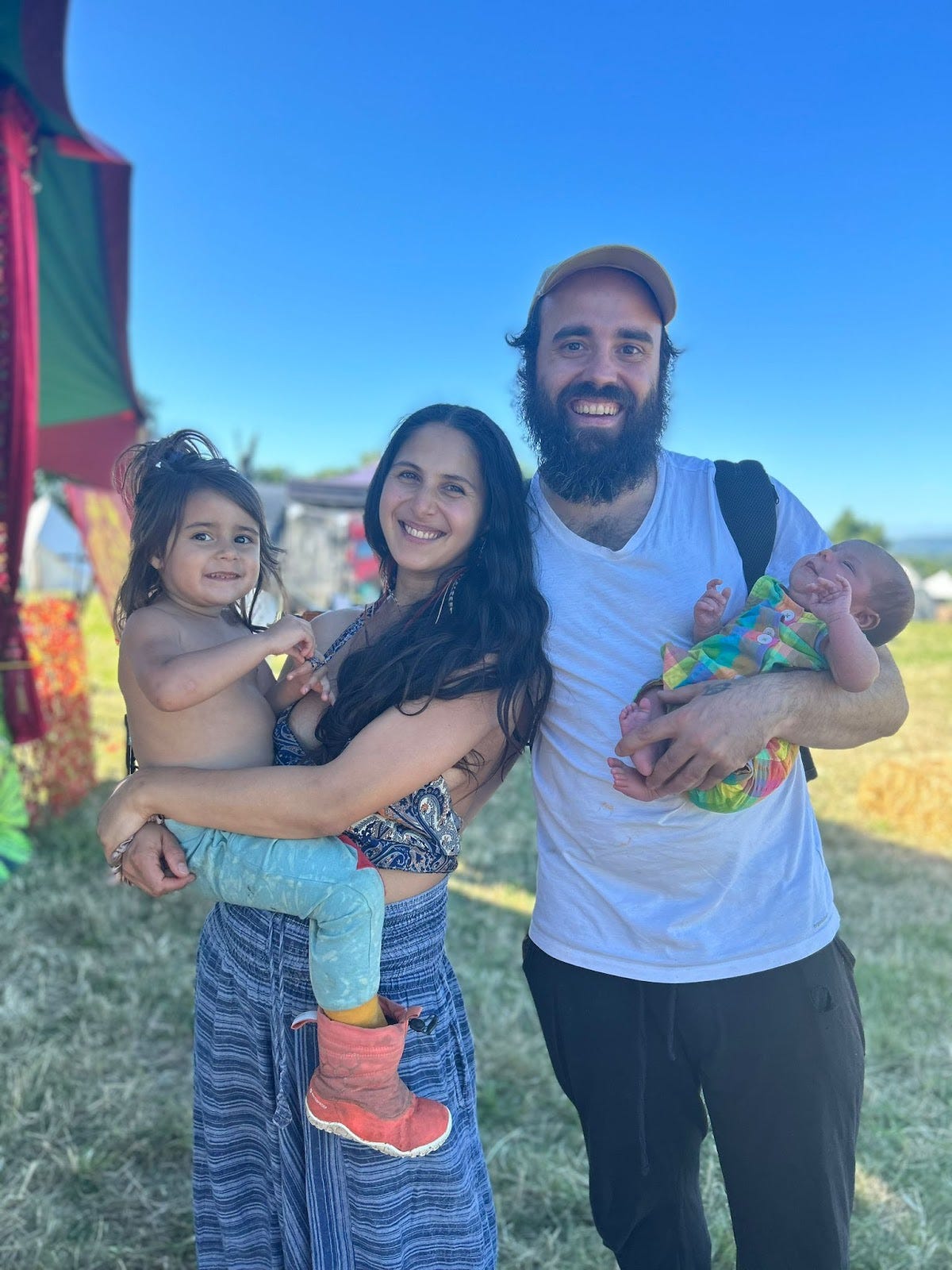

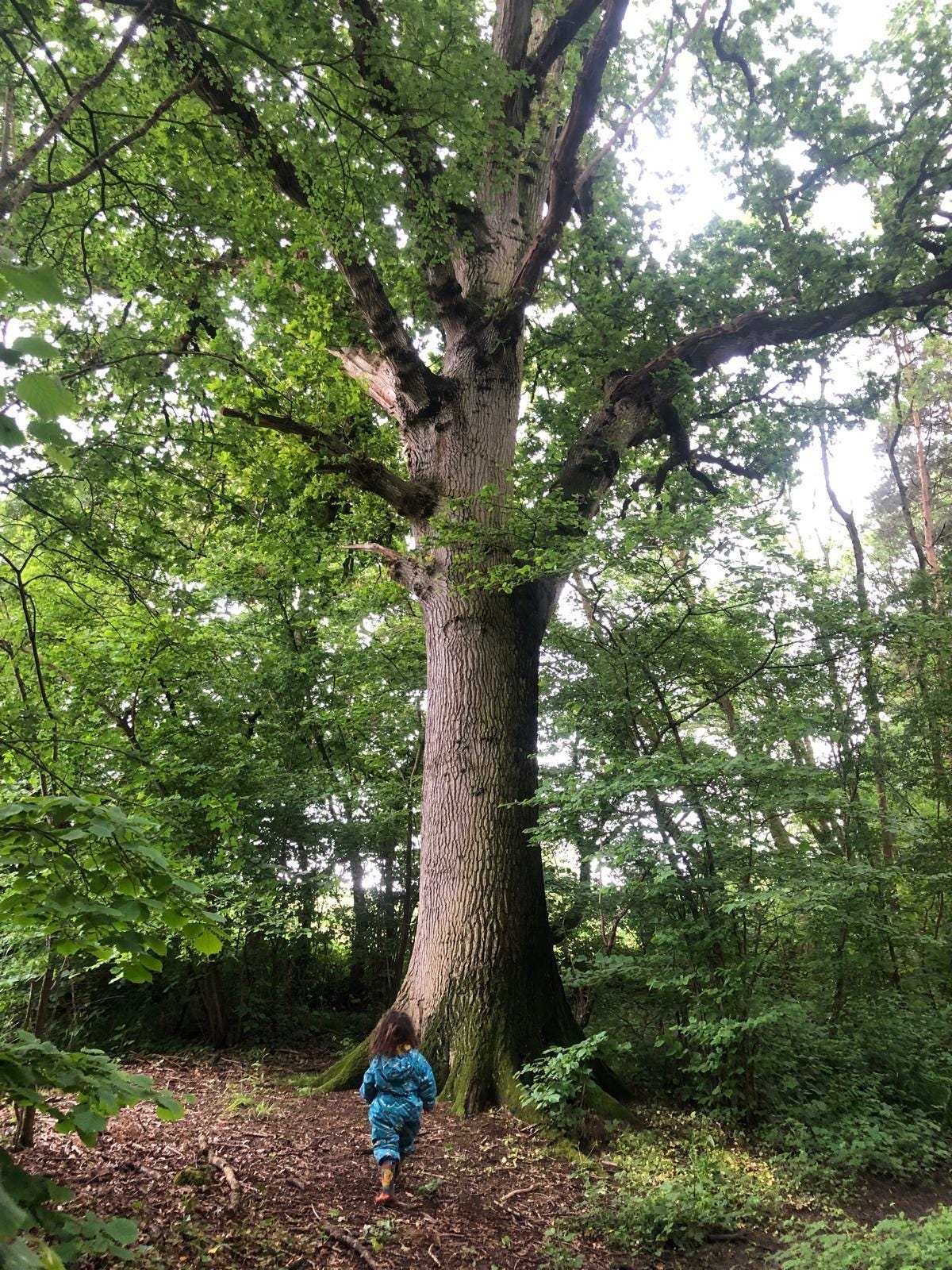
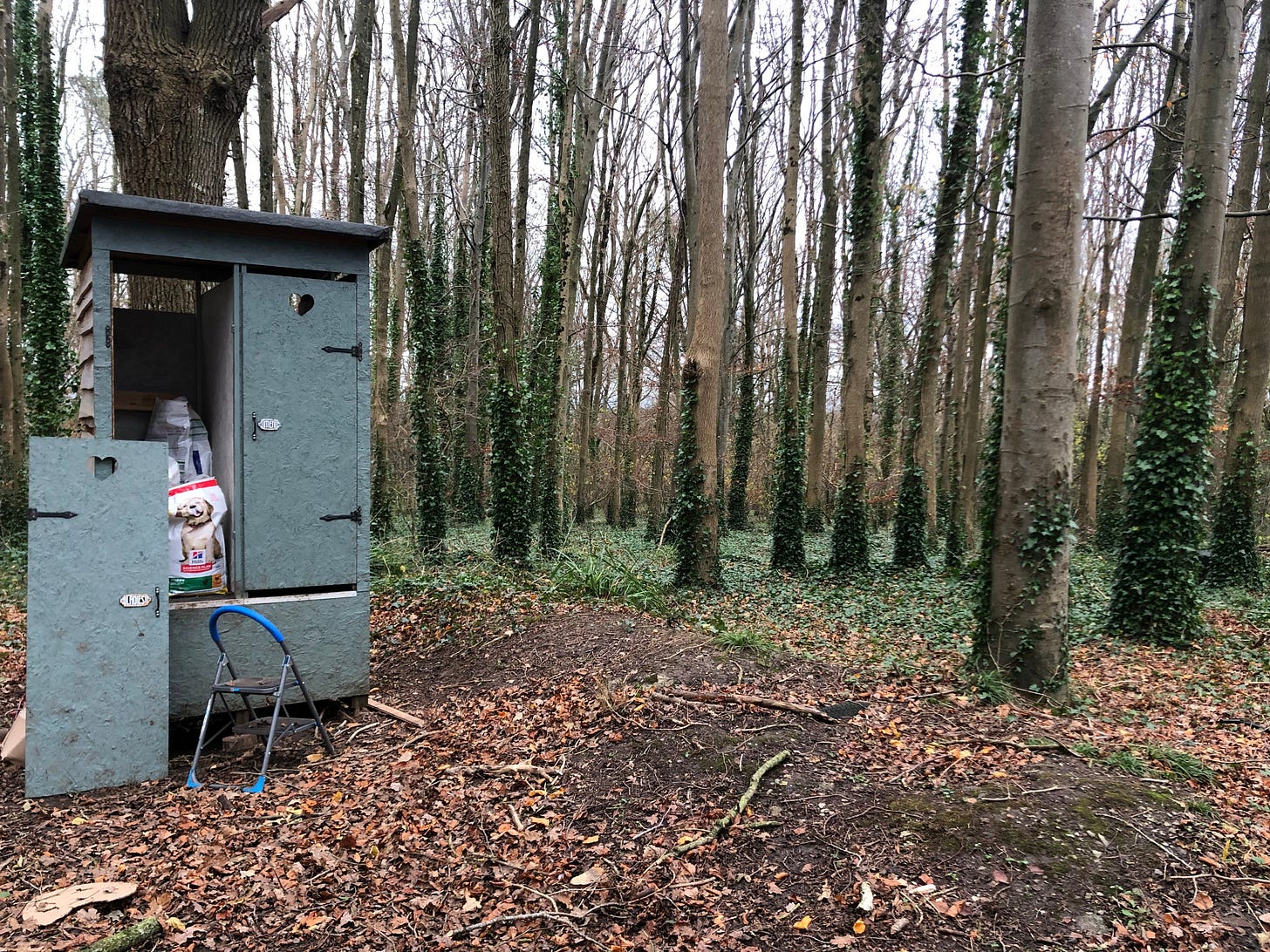


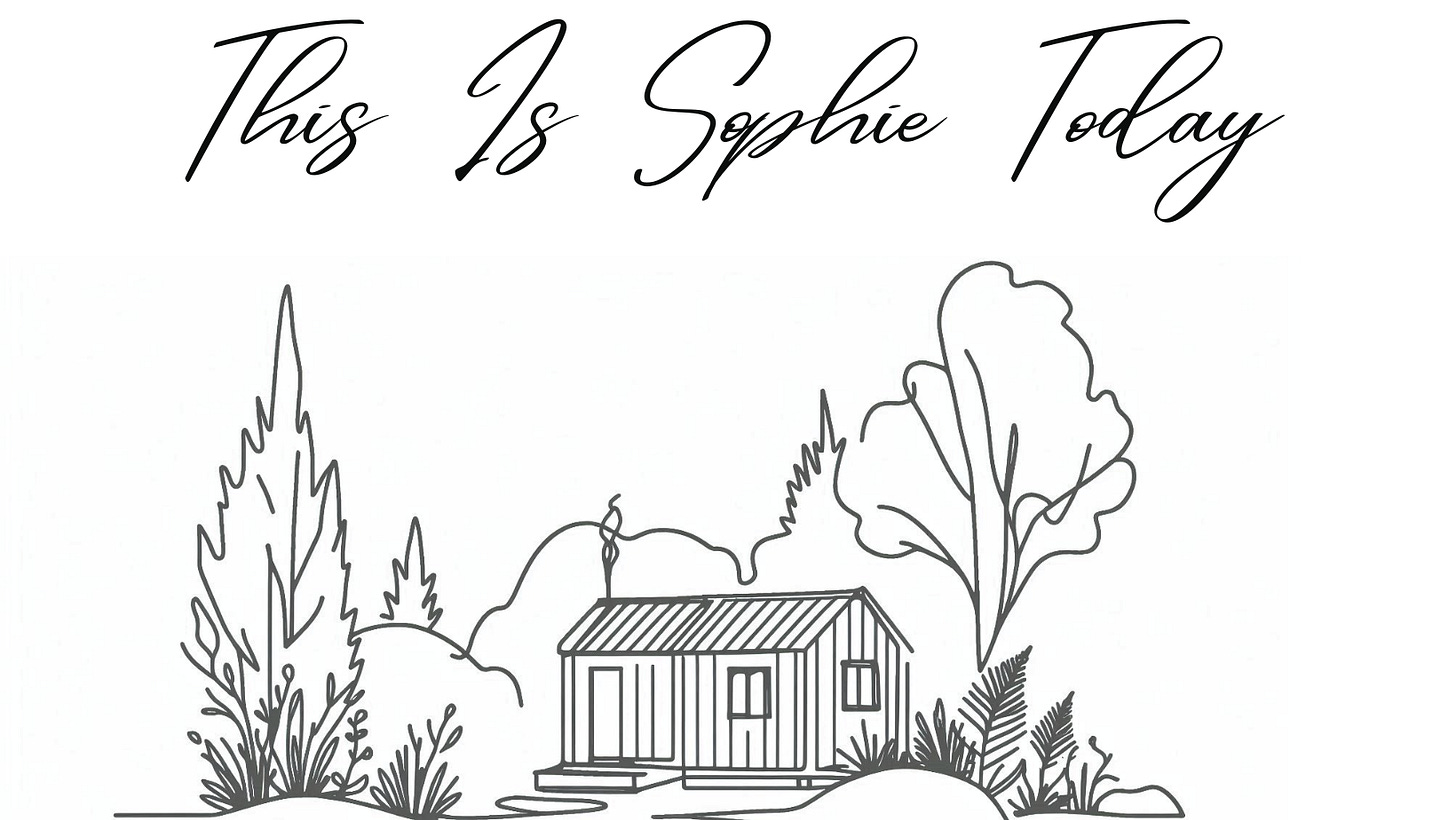
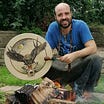
Hi Sophie & Luke
I missed your stories Sophie :)
Luke mentions something very important "If the electricity went out, the supermarkets shut their doors, or the taps stopped giving me water, I would be in trouble very quickly."
Most of us live in this strange reality where we're simultaneously more comfortable and more vulnerable than any humans in history.
We trade stories on smartphones but have forgotten how to tell them around fires.
We can order anything with a click but can't grow our own food.
We're connected to thousands online but disconnected from the land beneath our feet.
The most powerful part isn't that Luke and his family moved to the woods.
It's that they're rediscovering something our great-grandparents took for granted:
Real security isn't about having more.
It's about needing less.
Thank you so much for sharing :)
So inspiring! I'm currently sitting in a coffee shop enjoying my latte reminiscing about the trials of our 2-week camping trip where I got a taste of this lifestyle and fell in love with nature. I couldn't agree more with every principle of off grid living, especially about community and having our elders be the storytellers to pass on their wisdom. Still so very attached to warmth and luxuries. Also, haven't successfully let go of my book collection and leisure time to go all in....yet.
I'm so grateful to have stumbled upon Luke Miller's Substack. His work has been life changing for me as a writer and hopefully one day as an off gridder.